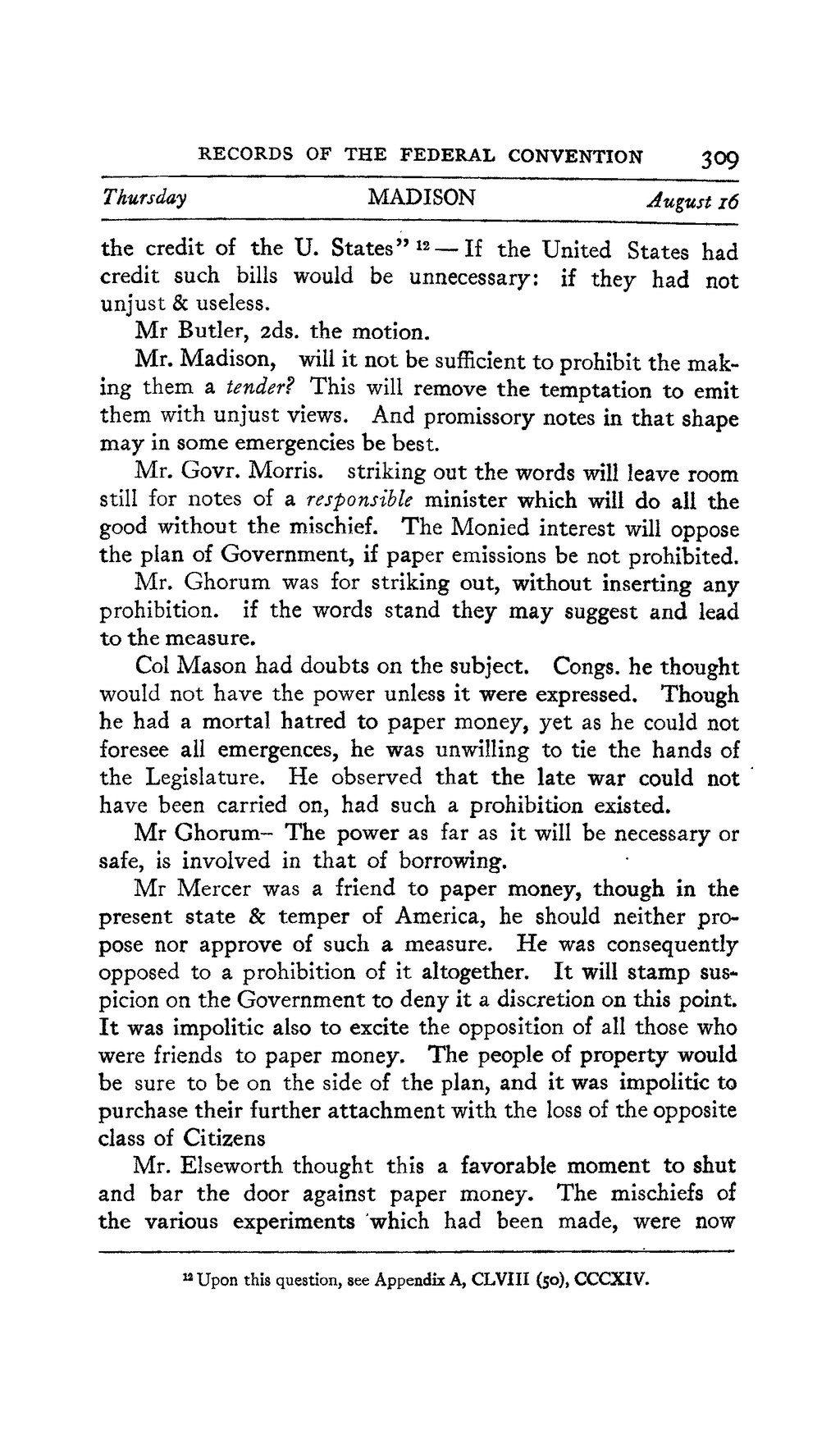RECORDS OF THE FEDERAL CONVENTION ?0? Thursday MADISON ?lugust ?6 the credit of the U. States;' ?2__ If the United States had credit such bills would be unnecessary: if they had not unjust & useless. Mr Butler, 2ds. the motion. Mr. Madison, will it not be sufficient to prohibit the mak- ing them a tender? This will remove the temptation to emit them with unjust views. And promissory notes in that shape may in some emergencies be best. Mr. Govr. Morris. striking out the words will leave room still for notes of a responsible minister which will do all the good without the mischief. The Monied interest will oppose the plan of Government, if paper emissions be not prohibited. Mr. Ghorum was for striking out, without inserting any prohibition. if the words stand they may suggest and lead to the measure. Col Mason had doubts on the subject. Congs. he thought would not have the power unless it were expressed. Though he had a mortal hatred to paper money, yet as he could not foresee all emergences, he was unwilling to tie the hands of the Legislature. He observed that the late war could not have been carried on, had such a prohibition existed. Mr Ghorum- The power as far as it will be necessary or safe, is involved in that of borrowing. Mr Mercer was a friend to paper money, though in the present state & temper of America, he should neither pro- pose nor approve of such a measure. He was consequently opposed to a prohibition of it altogether. It will stamp sus- picion on the Government to deny it a discretion on this point. It was impolitic also to excite the opposition of all those who were friends to paper money. The people of property would be sure to be on the side of the plan, and it was impolitic to purchase their further attachment with the loss of the opposite class of Citizens Mr. Elseworth thought this a favorable moment to shut and bar the door against paper mone 7. The mischiefs of the various experiments 'which had been made, were now Upon this question, see Appendix A, CLVIII (5o), CCCXIV.
�
